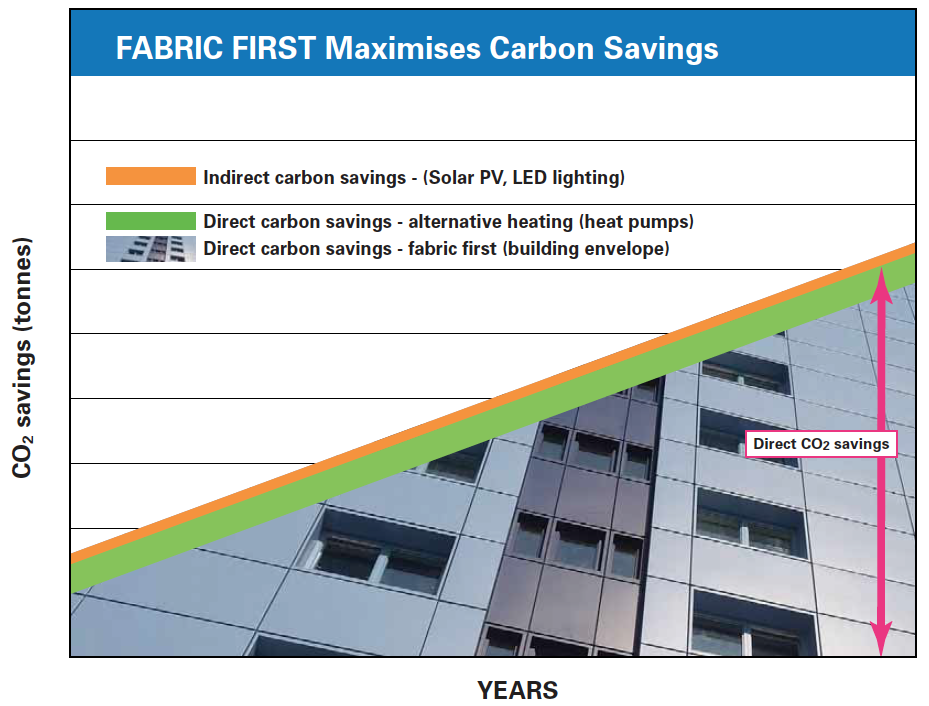FABRIC FIRST
Buildings are responsible for 30% of the UK’s entire carbon emissions and 79% of these building emissions are attributable to heating energy. A massive 70% of this heating energy is readily saved by applying d+b facades’ overcladding system that surpasses current standards by up to 25%, is proven to last and deliver a host of additional benefits, delivering truly sustainable regeneration as evidenced in this short film.
Ahead of all other measures, the UK’s dated building stock must be externally refurbished, using high-quality products these buildings are transformed to provide new build-equivalent accommodation, ensuring the transition to low-carbon heating is cost-effective and resilient for future generations.
‘Fabric-first’ means focusing on installing measures that upgrade the building fabric making it work as hard and as efficiently as it can before considering changes to the heating system and other building services engineering solutions.
Measures such as Solar PV and LED lighting are useful tools though simply save indirect carbon. Direct carbon savings are made through improved thermal efficiency and low carbon heating measures such as heat pumps. The benefits derived from alternative heating are minimal unless a fabric first approach is adopted from the outset.

Fabric upgrades will maximise heating energy and carbon savings when considering the whole building envelope – replacing windows alone constrains potential savings severely.
d+b facades’ insulated aluminium rainscreen with integrated high-performance double glazed windows is proven to deliver heating energy and carbon savings of up to 70%. Importantly the system has a design life of at least 60 years, delivering cumulative carbon savings over its lifetime far greater than other interventional measures. It is designed and installed as a fit-and-forget solution requiring no maintenance or cyclical replacement, unlike heating systems. Because the highly insulated new building envelope is so thermally efficient, it actually extends the life of existing heating systems by many years.
“The overcladding to the James Parsons building was completed in December 2007. Subsequently, the outside temperature during a major cold snap that lasted the whole of January and February never got above -5C, during which time we experimented and found that we only had to switch on the old boiler heating system for 1 hour in the early morning and the building maintained a perfect working temperature throughout the entire day. We have cancelled the planned major investment in new boilers and heating system because it is simply not necessary, it would never payback the capital investment required. The highly insulated overcladding is saving almost all of the heating energy and carbon emissions and we have a beautiful new sustainable maintenance-free building that is attracting both students and staff alike securing the future of the University. We highly recommend that others adopt this proven solution.”
Colin Davies, Director of Estates, Liverpool John Moores University

